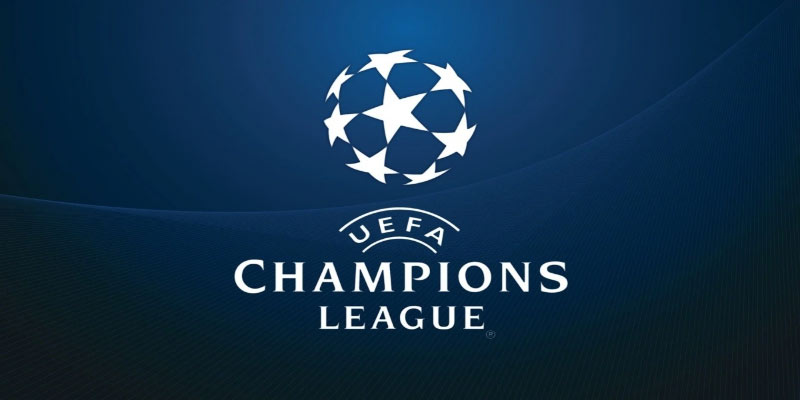
UEFA Champions League: A Historical Overview and Top Teams
The UEFA Champions League is one of the most prestigious tournaments in club football, bringing together the elite of European football for a contest that captivates millions of fans worldwide. Established in its current form in 1992, it has evolved over the years to become a showcase of talent, strategy, and drama. This article will take you through a historical overview of the tournament, highlight the most successful teams, and examine its impact on the sport of football.
History of the UEFA Champions League
The UEFA Champions League has a rich history that intertwines with the development of football across Europe. Originally started as the European Cup in 1955, the tournament began as a straightforward knockout competition where the champions of each European nation competed for glory.
The Birth of the European Cup
The inception of the European Cup came at a time when football was gaining traction. The idea was generated by Gabriel Hanot, a French sports journalist, who envisioned a tournament featuring the top clubs in Europe. Arranging the first tournament involved considerable logistical challenges, yet it debuted on September 4, 1955.
Clubs like Real Madrid, AC Milan, and Benfica quickly established themselves in this new format, with Real Madrid winning the inaugural championship, setting a precedent for future dominance.
Transition to the UEFA Champions League
As the competition gained popularity, changes were inevitable. In 1992, UEFA decided to rebrand the European Cup as the UEFA Champions League. This transition marked a shift towards a more commercially viable format that included a group stage, allowing more matches and, consequently, maximizing revenue from broadcasting and sponsorship deals.
This reformatting led to an incredible increase in the profile of the tournament. The branding reinforced the notion that this was a league of champions, where the pursuit of excellence was paramount.
The Modern Era
The late 1990s and early 2000s ushered in a new era characterized by competitiveness and the introduction of new teams and players. The advent of foreign television rights expanded the global appeal of the Champions League, attracting an audience that transcended national borders. Currently, the tournament is recognized not just as a sporting event but a cultural phenomenon, facilitating the crossover of football into entertainment.
Top Teams in UEFA Champions League History
Among the remarkable history of the UEFA Champions League, certain teams stand out for their accomplishment and legacy. This section will explore the top teams and their contributions to the tournament.
Real Madrid: The Kings of the Champions League
Real Madrid is synonymous with the UEFA Champions League, having won the tournament a total of 14 times—the most of any club. Their dominance began in the late 1950s, where they secured five consecutive titles, setting a standard for excellence.
Madrid’s success is attributed to a blend of tactical mastery, skilled players, and adherence to a winning culture. Under legendary managers like Miguel Muñoz and Carlo Ancelotti, the team has produced memorable moments that have crystallized their legacy in the tournament’s history.
AC Milan: A Legacy of Triumph
AC Milan occupies a prominent space in the annals of UEFA Champions League history, winning the title seven times. From their early victories in the 1960s to the remarkable triumphs in the 2000s, Milan showcased a blend of technical prowess and physicality.
Stars like Paolo Maldini, Franco Baresi, and Kaka provided Milan with the edge over their opponents. The club’s storied history is marked by iconic matches that cemented their status as one of the top teams in European football.
Liverpool FC: The Comeback Kings
Liverpool FC’s involvement in the UEFA Champions League is marked by their capacity for thrilling comebacks, with memorable moments like the 2005 final against AC Milan, where they overturned a 3-0 deficit. The club has earned six titles, and its rich history reflects the passion of its fan-base and the club’s ethos.
Under the management of Jurgen Klopp, Liverpool has revived their fortunes, re-establishing themselves as contenders in Europe and proving that they can mix it with the best teams on the continent.
Bayern Munich: Dominance in Germany and Beyond
Bayern Munich holds a notable place in UEFA Champions League history, having amassed six titles. The club is known for its unwavering consistency in the tournament, frequently reaching advanced stages in the competition. Their tactical versatility, combined with world-class players like Frank Ribery and Arjen Robben, has led them to many memorable nights.
Bayern’s ability to adapt to various playing styles while maintaining high standards of performance makes them one of the dangers in continental football.
Notable UEFA Champions League Finals
The UEFA Champions League finals have always been a battleground for history, showcasing unforgettable moments and pivotal performances. This section dives into some finals that have significantly impacted the footballing world.
The Miracle of Istanbul: Liverpool vs. AC Milan (2005)
The 2005 final between Liverpool and AC Milan is often regarded as one of the greatest football matches in history. Played in Istanbul, the match saw AC Milan take a commanding 3-0 lead into halftime. However, the second half witnessed a remarkable response from Liverpool, who leveled the match in a span of just six minutes.
The match ended 3-3, and Liverpool triumphed in the penalty shootout—a testament to their resilience and determination, marking one of the most iconic moments in Champions League history.
The Headbutt That Changed It All: Zidane’s Masterclass
The 1998 final between Real Madrid and Juventus showcased the brilliance of Zinedine Zidane. His two iconic headers from corner kicks propelled Real Madrid to a 1-0 victory. Zidane’s performance not only secured him a place in the scalp of football history but also demonstrated the magic of individual brilliance on the global stage.
Zidane’s goal cemented his status as one of the game’s greats and reminded fans that finals can often hinge on moments of brilliance.
The Underdog Story: Porto’s Triumph in 2004
FC Porto’s surprising run to the title in 2004 under the guidance of a young Jose Mourinho marked a turning point in football dynamics. Porto faced AS Monaco in the final and demonstrated sheer dominance with a 3-0 victory, showcasing tactical intelligence and sharp execution.
Mourinho’s Porto transcended expectations, paving the way for his own illustrious managerial career while simultaneously emphasizing that even the underdogs can emerge victorious in the Champions League.
The Battle of Wembley: Barcelona vs. Manchester United (2011)
The 2011 final at Wembley saw Barcelona take on Manchester United, two of the best teams in the world. Barcelona’s 3-1 victory showcased their attacking prowess and tactical genius, underlined by Lionel Messi’s brilliance on the pitch. The final reinforced Barcelona’s status as a footballing powerhouse and left an indelible mark on the tournament’s legacy.



